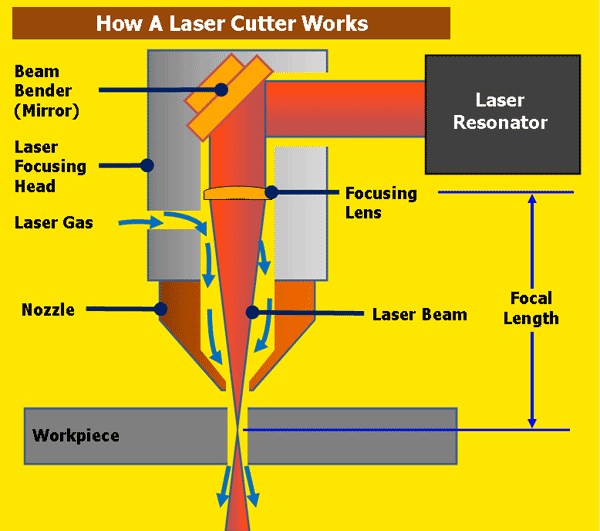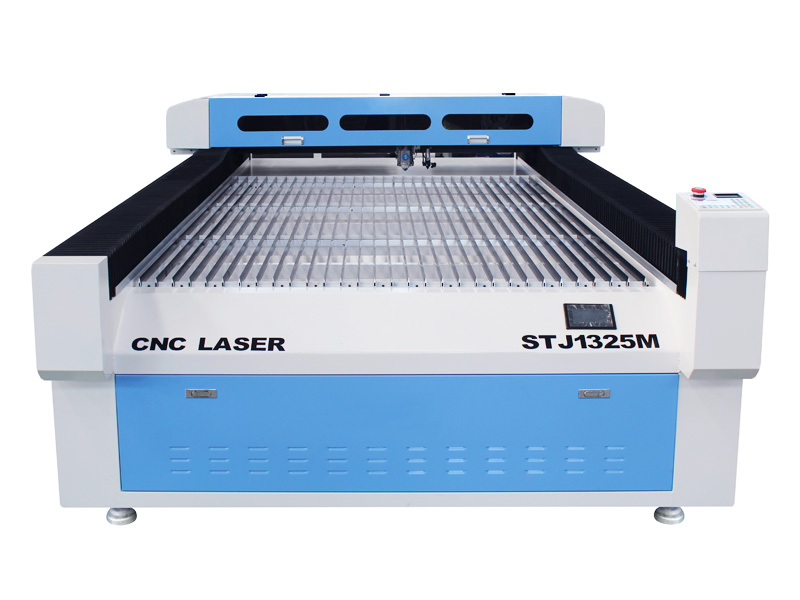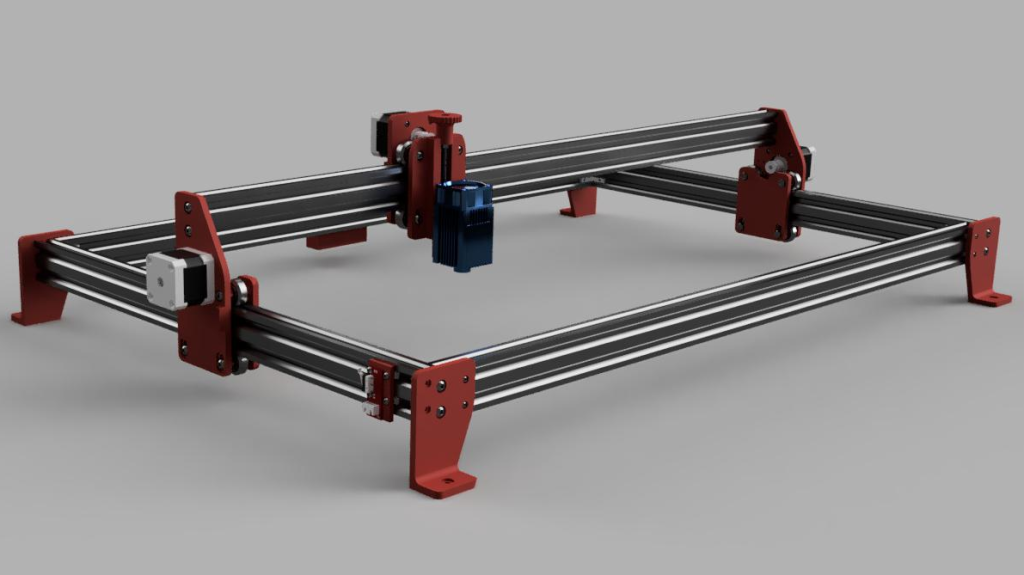Table of Contents
Rubber is a versatile material used in various industries, and cutting it with precision is essential. One of the methods that come to mind is CNC laser cutting, but can you cut rubber with a CNC laser?
CNC laser cutting is a popular method for cutting materials with precision, but when it comes to rubber, things can get a bit tricky. In this article, we will explore whether CNC laser cutting is a viable option for cutting rubber and what factors to consider before using this method.
Can You Cut Rubber With a CNC Laser?
Rubber is a versatile material that is used in various applications, ranging from automotive parts to medical devices. CNC lasers are known for their precision and accuracy in cutting different materials, but can they be used for cutting rubber? In this article, we will explore the capabilities of CNC lasers for cutting rubber.
How CNC Lasers Cut Rubber
CNC lasers use a high-powered beam of light to cut through materials. The laser beam is focused on the surface of the material, which causes it to heat up and melt. As the laser moves across the material, it cuts through it with extreme precision.
However, rubber is a unique material that requires a specific type of laser to cut it. A CO2 laser is the best option for cutting rubber because it is absorbed by the material more efficiently. The laser beam is also less likely to cause burning or charring, which can affect the quality of the cut.
The Benefits of CNC Laser Cutting for Rubber
CNC laser cutting offers several benefits for cutting rubber. First, it provides a high level of accuracy and precision, which is important for producing parts that fit together correctly. Second, it allows for complex shapes and designs to be cut with ease. Third, it reduces the need for post-processing, which saves time and money.
The Vs of CNC Laser Cutting for Rubber
Despite the benefits, there are some limitations to using CNC lasers for cutting rubber. One of the main limitations is the thickness of the material. CNC lasers are not suitable for cutting rubber that is thicker than 10mm. Another limitation is the cost of the equipment. CNC laser cutting machines can be expensive to purchase and maintain.
The Process of CNC Laser Cutting for Rubber
The process of CNC laser cutting for rubber involves several steps. First, the design is created using CAD software. The design is then uploaded to the CNC laser cutting machine, which uses the software to create a cutting path. The rubber sheet is then placed on the cutting bed, and the laser beam is focused on the material. The machine then cuts the rubber according to the design.
The Benefits of Using CAD Software
Using CAD software offers several benefits for designing rubber parts. First, it allows for greater accuracy and precision in the design. Second, it reduces the need for manual measurements, which can lead to errors. Third, it allows for quick and easy modifications to the design.
The Vs of Using CAD Software
However, there are some limitations to using CAD software. One limitation is the learning curve. It can take time to learn how to use the software effectively. Another limitation is the cost of the software. CAD software can be expensive, especially for advanced versions.
The Applications of CNC Laser Cutting for Rubber
CNC laser cutting for rubber has several applications. It is commonly used in the production of gaskets, seals, and other rubber parts for the automotive industry. It is also used in the production of medical devices, such as tubing and seals.
The Benefits of CNC Laser Cutting for the Automotive Industry
CNC laser cutting offers several benefits for the automotive industry. First, it allows for the production of complex shapes and designs. Second, it offers a high level of accuracy and precision, which is important for parts that fit together correctly. Third, it reduces the need for post-processing, which saves time and money.
The Vs of CNC Laser Cutting for the Automotive Industry
However, there are some limitations to using CNC lasers for cutting rubber in the automotive industry. One limitation is the cost of the equipment. CNC laser cutting machines can be expensive to purchase and maintain. Another limitation is the thickness of the material. CNC lasers are not suitable for cutting rubber that is thicker than 10mm.
The Conclusion
In conclusion, CNC lasers can be used for cutting rubber, but it requires a specific type of laser and careful consideration of the material’s thickness. CNC laser cutting offers several benefits for producing high-quality parts, but it also has some limitations. As with any manufacturing process, it is important to weigh the benefits and limitations before deciding to use CNC laser cutting for rubber.
Frequently Asked Questions
As a professional writer, I am happy to provide answers to some of the most common questions regarding the subject of cutting rubber with a CNC laser. Here are five questions and answers to help you understand the process.
Can rubber be cut with a CNC laser?
Yes, rubber can be cut with a CNC laser. In fact, a laser cutter is an excellent tool for cutting rubber. The high precision of the laser beam allows for clean and accurate cuts, even on intricate designs. However, the specific type of rubber being cut and the thickness of the material will determine the power and speed settings required for the laser to cut through it. It is essential to consult with a professional technician to ensure that the appropriate laser settings are used to achieve the desired results.
It is important to note that some types of rubber may produce harmful fumes when cut with a laser. Therefore, it is crucial to ensure proper ventilation and safety measures are in place when cutting rubber with a CNC laser.
What types of rubber can be cut with a CNC laser?
A CNC laser can cut through most types of rubber, including natural rubber, silicone, neoprene, and EPDM. However, the thickness and composition of the rubber can affect the success of the cut. Thicker rubber may require more power and slower speeds to cut through, while thinner rubber may require less power and faster speeds.
It is important to note that some additives in rubber, such as fire retardants or plasticizers, may affect the cutting process. Therefore, it is essential to consult with a professional laser technician to determine the best settings for cutting a specific type of rubber.
What are the advantages of cutting rubber with a CNC laser?
The advantages of cutting rubber with a CNC laser include high precision, speed, and accuracy. A laser cutter can create intricate designs and patterns at a more rapid pace than traditional cutting methods. The laser beam’s precision allows for clean and accurate cuts, reducing the need for additional finishing work. Additionally, the CNC laser can cut through various thicknesses of rubber, making it an excellent tool for producing custom shapes and sizes.
Another advantage of using a CNC laser to cut rubber is that it can be a more cost-effective method. The laser cutter’s precision reduces material waste and can be more efficient than traditional cutting methods, ultimately saving time and money on production costs.
What are some common applications for CNC laser-cut rubber?
CNC laser-cut rubber is commonly used in various industries, including automotive, medical, and electronics. In the automotive industry, rubber gaskets and seals are often cut using a CNC laser to ensure a precise fit. Medical devices, such as tubing and seals, can also be cut using a laser cutter to ensure sterile and accurate cuts. Additionally, the electronics industry uses CNC laser-cut rubber to produce custom parts, such as keypads and seals for electronic devices.
Other applications for CNC laser-cut rubber include custom stamps, rubber bands, and gaskets for industrial equipment.
What should be considered when cutting rubber with a CNC laser?
When cutting rubber with a CNC laser, several factors should be considered to ensure a successful cut. The type of rubber being cut, the thickness of the material, and the desired design or shape are all essential considerations. The appropriate laser power and speed settings should also be determined based on the rubber’s composition and thickness. Proper ventilation and safety measures should be in place to protect against harmful fumes and ensure a safe working environment.
Additionally, it is important to have a clear understanding of the laser cutter’s capabilities and limitations when working with rubber. Consultation with a professional laser technician can help ensure that the cutting process is successful and produces the desired results.
In conclusion, the answer to the question “Can you cut rubber with a CNC laser?” is a resounding yes. While rubber is not typically thought of as a material that can be cut with a laser, advances in laser technology have made it possible. With the right settings and precautions, a CNC laser can cleanly cut through rubber with precision and ease.
The ability to cut rubber with a CNC laser opens up new possibilities for industries that rely on this material. From creating custom gaskets and seals to cutting out intricate designs for fashion accessories, the potential uses are endless. CNC lasers offer a level of accuracy and efficiency that traditional cutting methods simply cannot match.
It is important to note that not all CNC lasers are created equal, and some may not be suitable for cutting rubber. It is crucial to work with a reputable and experienced CNC laser cutting service that has the proper equipment and expertise to handle rubber cutting projects. With the right tools and knowledge, cutting rubber with a CNC laser can be a game-changer for many industries.
Request a quote today!
[contact-form-7 id="1578" title="Contact form"]
Please compress the file into a ZIP or RAR file before uploading. Alternatively, send through your RFQ by email.
enquires@unitymanufacture.com





